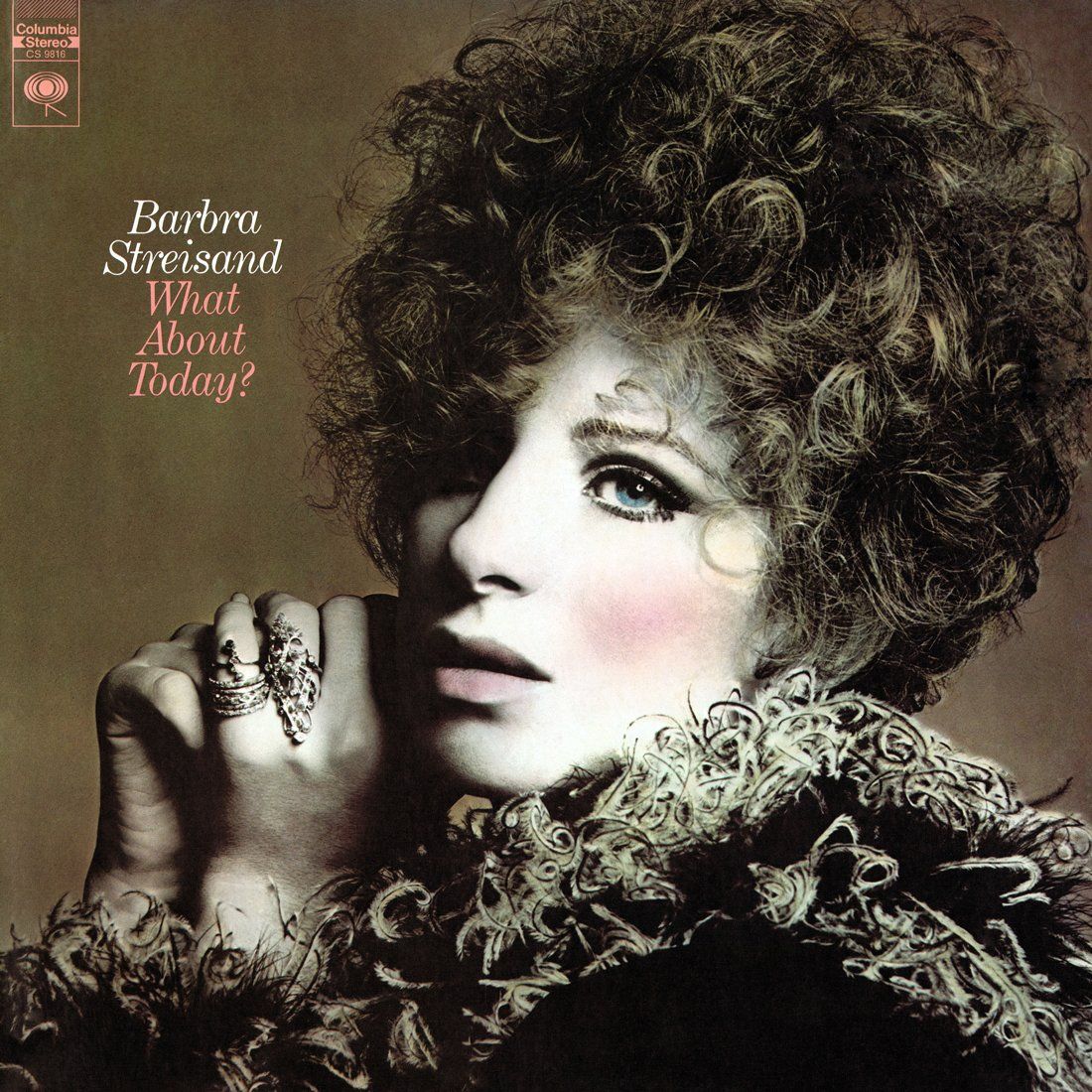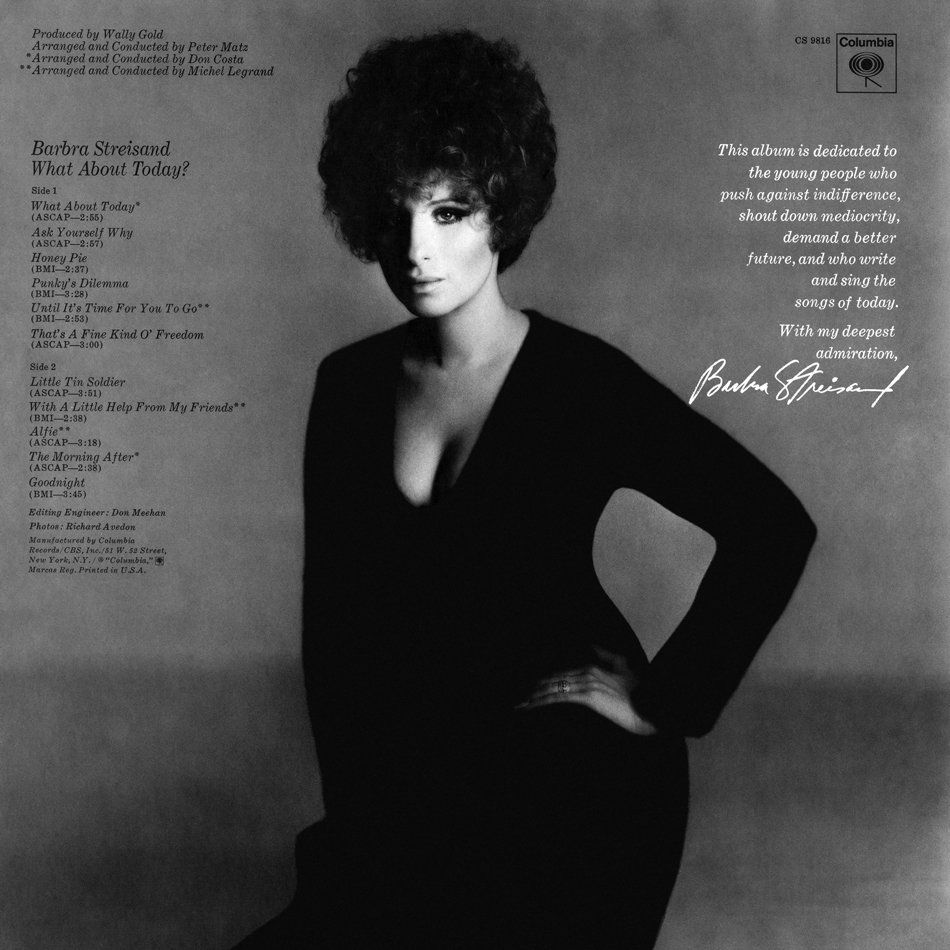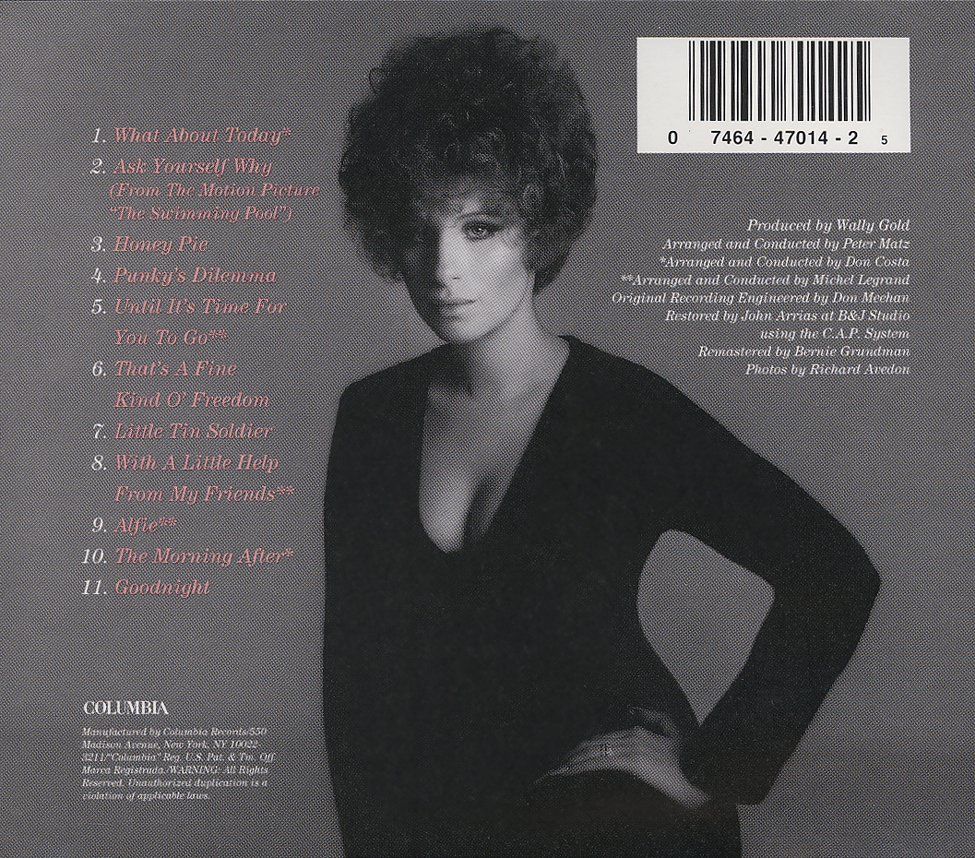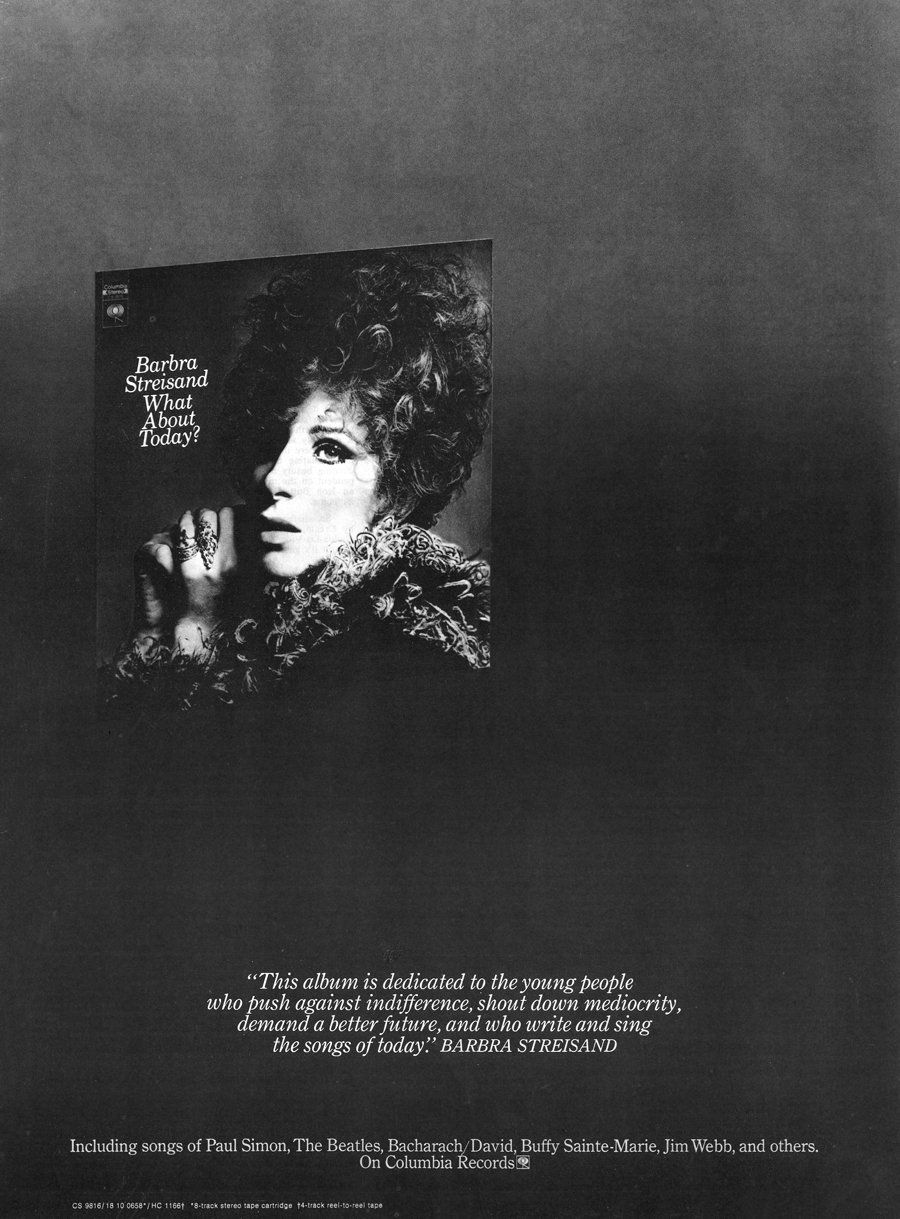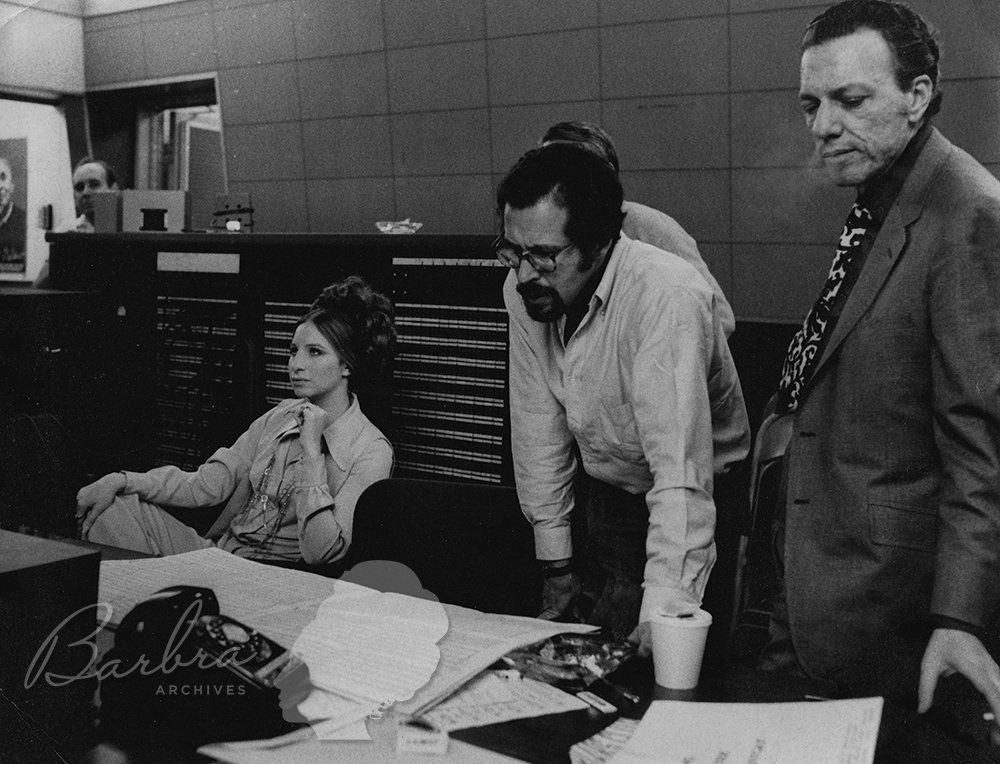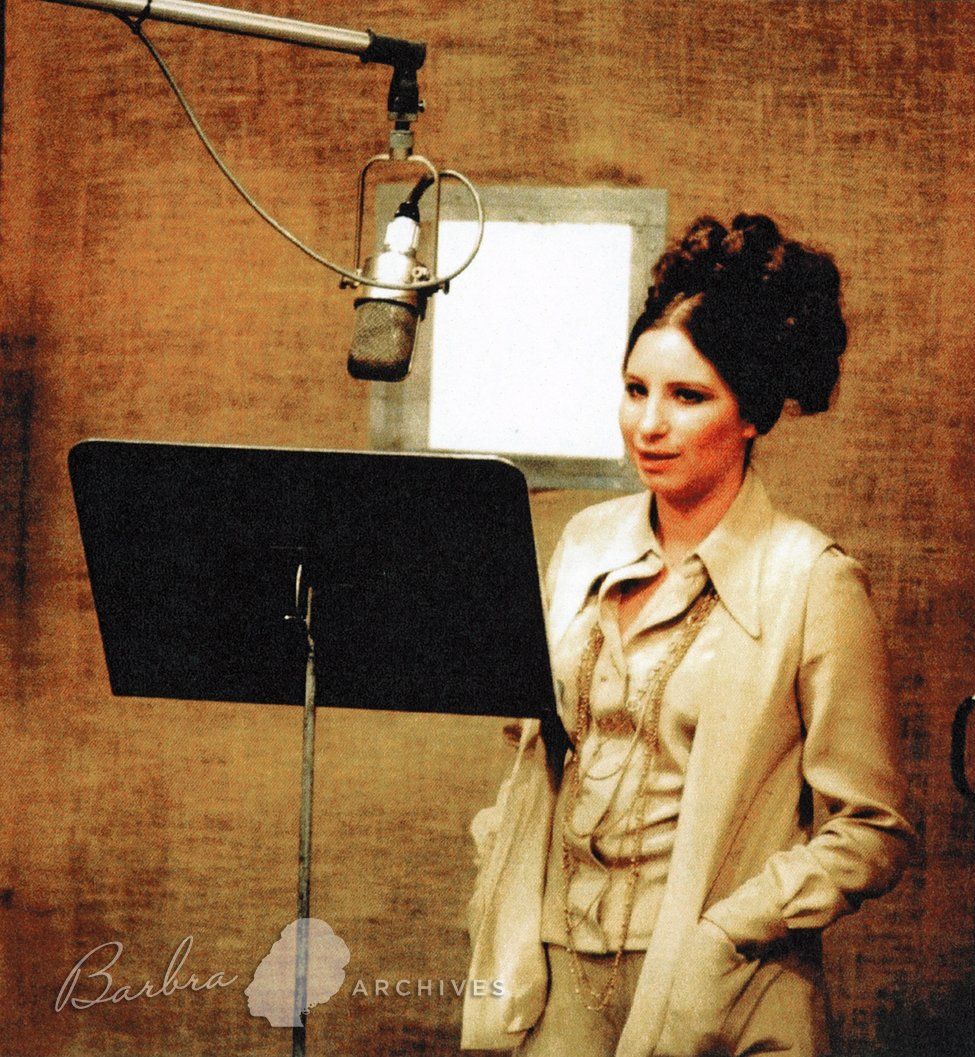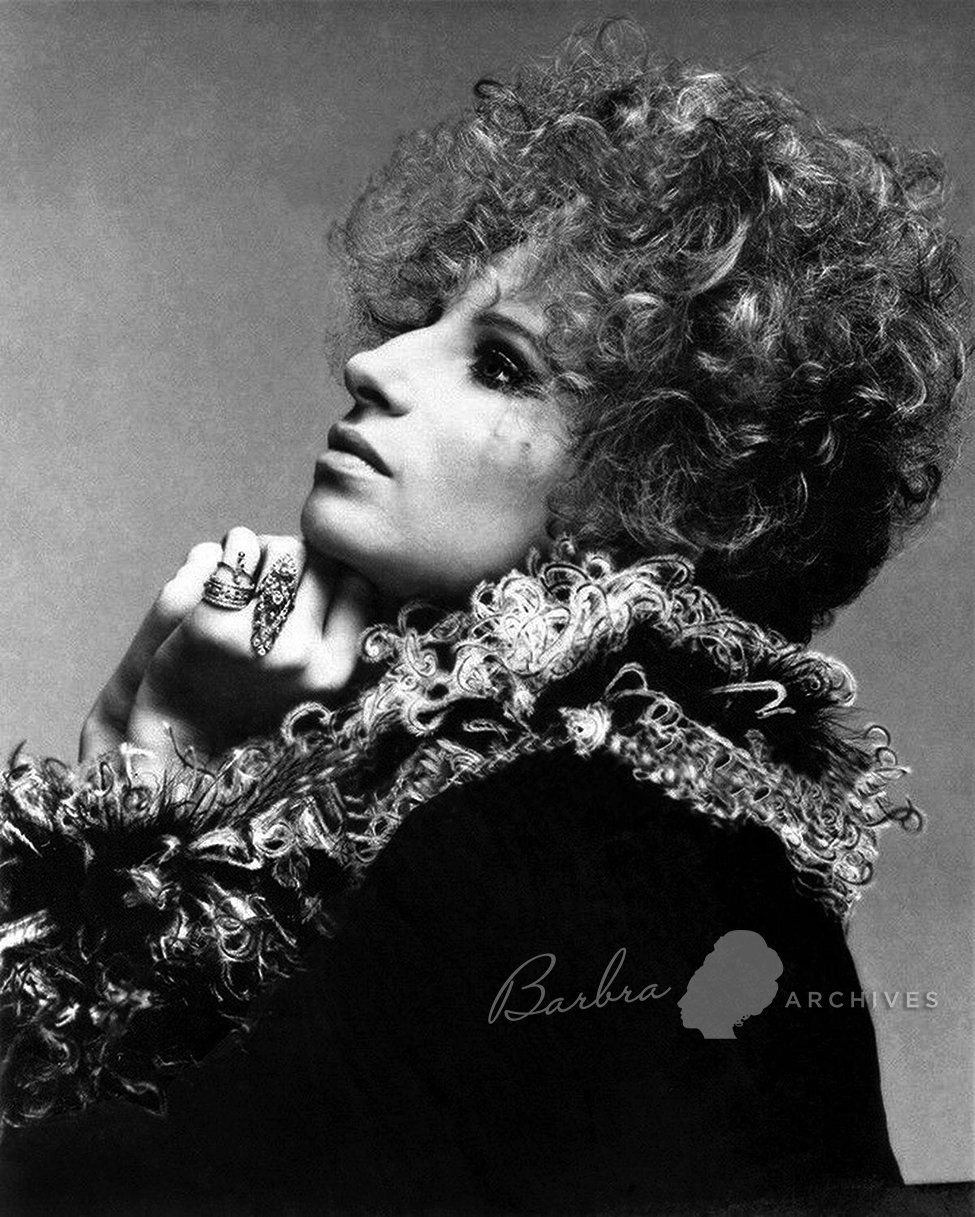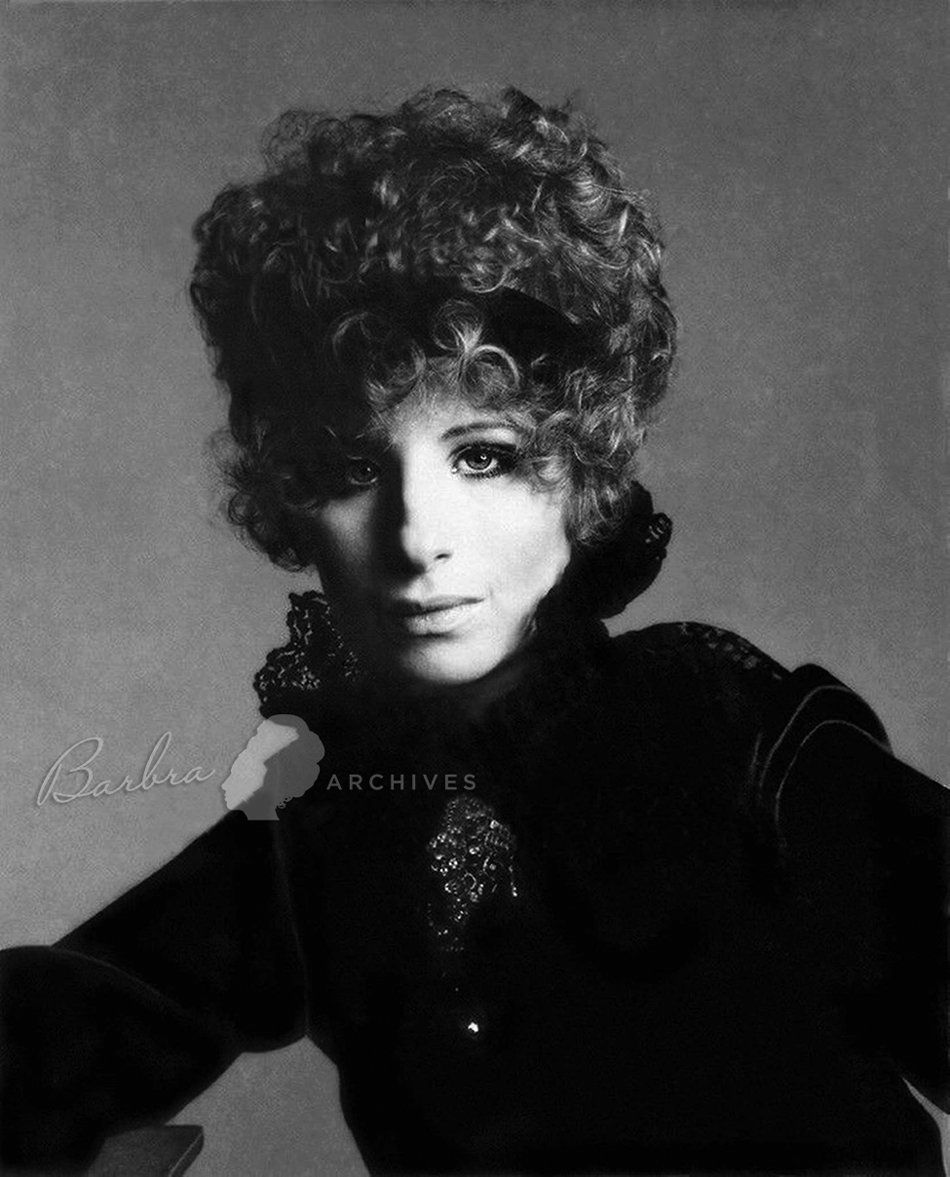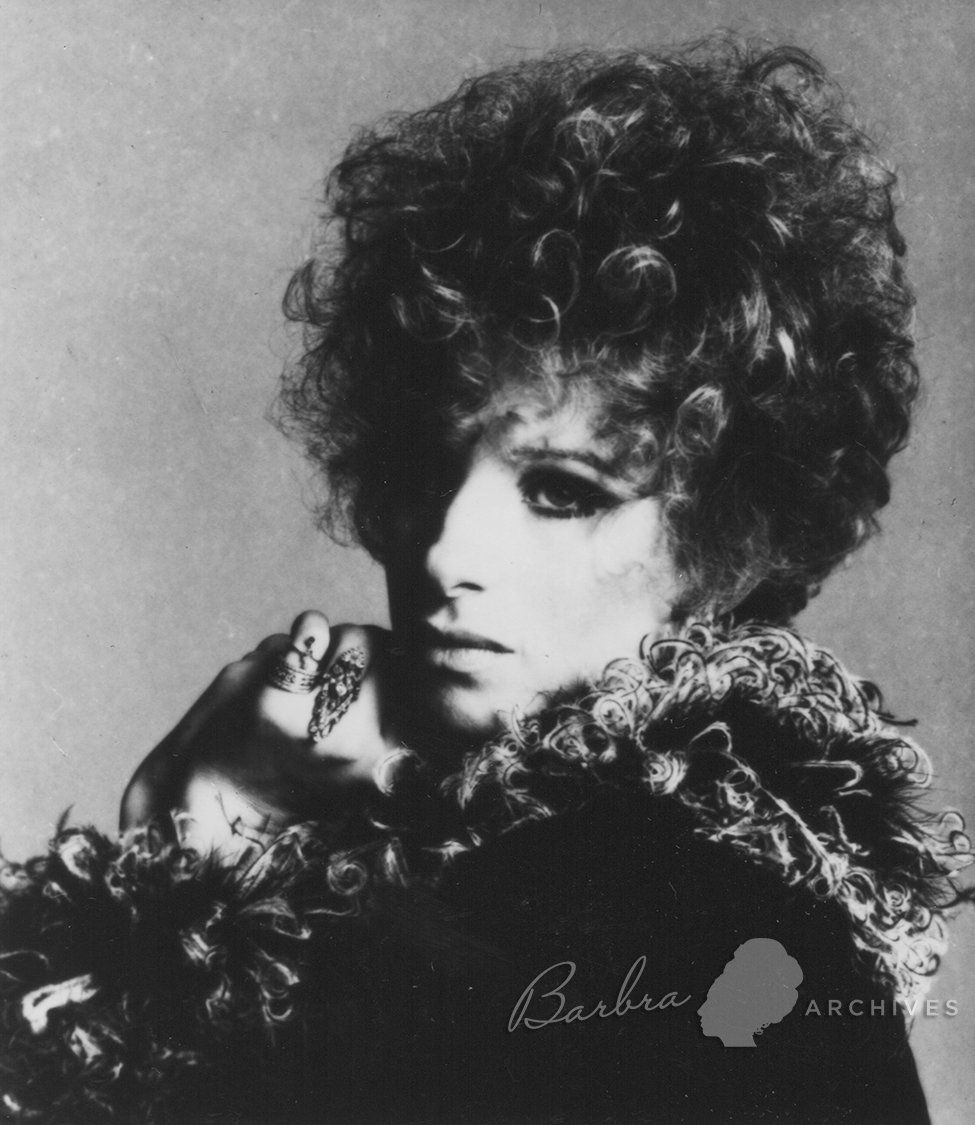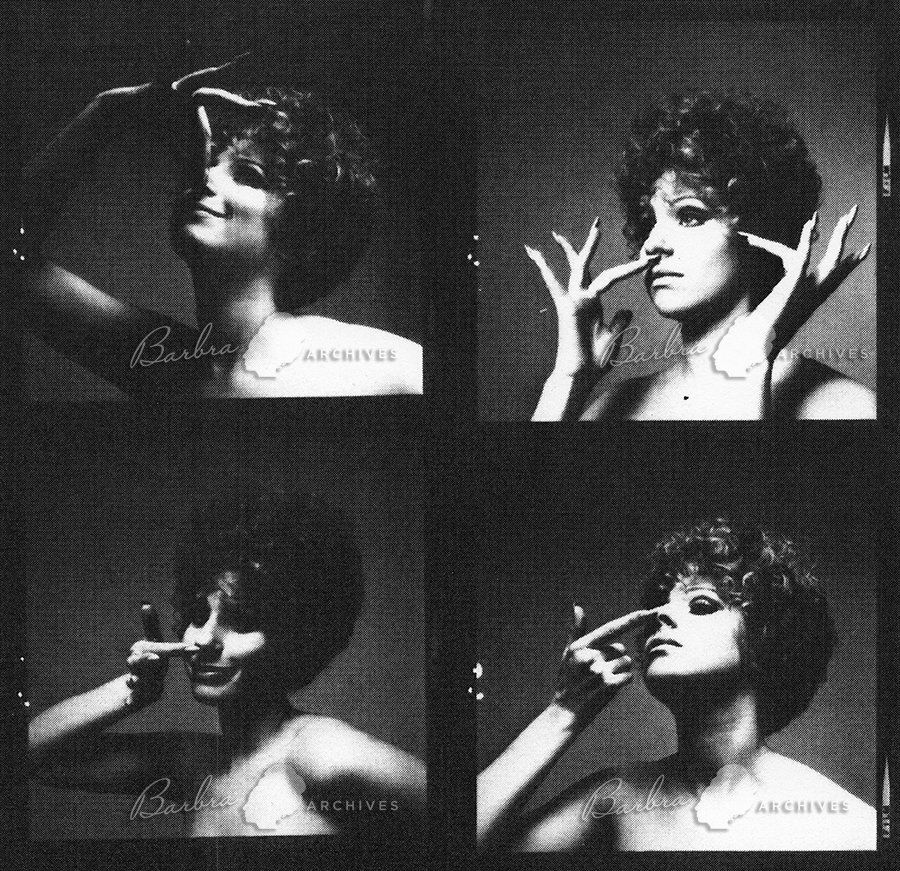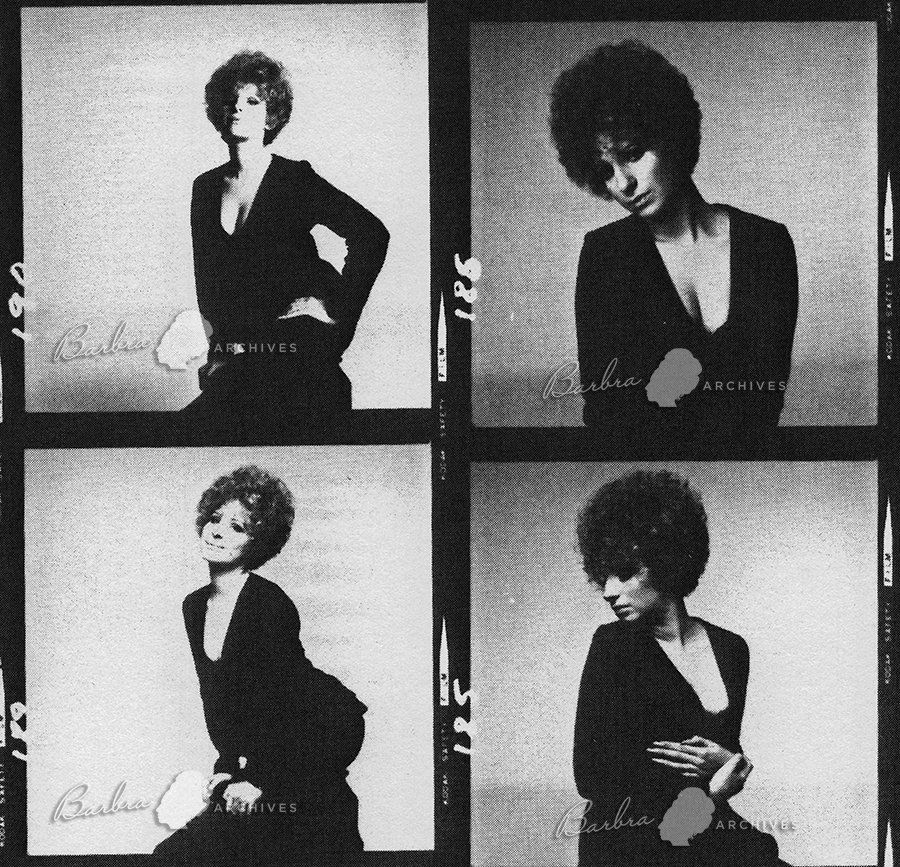Clive Davis became president of Columbia Records in 1967, taking over for the venerable Goddard Lieberson, who had originally signed Barbra Streisand to the record label. Clive Davis brought new energy and youthfulness to the label, signing a great array of rock and pop stars including Janice Joplin, Laura Nyro, Bruce Springsteen, and Billy Joel.
The times were changing, too. 1968-1969 marked the civil rights protests in the United States; Students were protesting the Vietnam War; and Martin Luther King was assassinated.
Clive Davis asked Streisand to update her repertoire – especially when Barbra’s last album of standards, Simply Streisand, failed to crack the Top Ten Albums list.
So, in January 1968, Streisand recorded three pop songs. The session was produced by Jimmy “Wiz” Wisner, and the songs sound like the “Northern Soul” hits of the era. On the up-tempo song “Our Corner of the Night,” Wisner even “double tracked” Streisand’s vocal, giving the ditty a bigger sound. Columbia released the single of “Our Corner of the Night” b/w “He Could Show Me” February 1968, but it did not sell well. “Frank Mills” from Hair was the third song Barbra recorded during that session; Hair: The American Tribal Love-Rock Musical was a big hit on Broadway, and many artists were rushing to record songs from it. However, Barbra’s “Frank Mills” didn’t hit record stores until 1969 when the momentum had already passed, and when What About Today? had already been released.
When choosing the tracks for the What About Today? album, Streisand attempted to get the right mixture of contemporary and relevant songs. She recorded in March 1968, February 1969, and May 1969.
Barbra also worked with a new producer for these sessions – Wally Gold. Gold had co-written the Elvis Presley hit, “It’s Now or Never,” and Lesley Gore’s “It’s My Party.” At Columbia Records he produced albums for Tony Bennett and Jerry Vale.
“It was a shining encounter,” Gold recalled about working with Streisand. “I enjoyed her tremendously, as an artist, and as a person. She wanted things right, but she wasn’t tough about it … That instrument of hers – her voice – was amazing.”
What About Today? was dedicated by Streisand to “the young people who push against indifference, shout down mediocrity, demand a better future, and who write and sing the songs of today.”
“I admire today’s youth,” Streisand told columnist Florabel Muir, “though I don’t feel a part of it.”
In 2016, Barbra reflected on the album saying, “Even though the songs were contemporary, the production didn’t have a particularly modern sound and the album didn’t really catch on. But there’s some goodies on it!”

